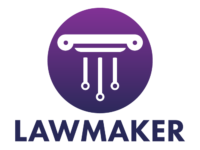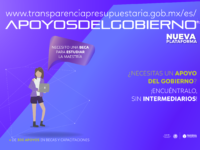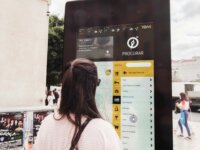ID2020 is a public-private partnership dedicated to improving lives through private and user-controlled digital identity. Today, over 1 billion people live without any form of legal ID, which can leave them economically marginalized and robbed of the opportunity for active citizenship. ID2020 is setting technical standards and launching pilot projects aimed at finding scalable digital identity solutions for world's most vulnerable populations, particularly refugees and stateless persons.
Innovation Tag: Social Innovation
LawMaker is a lobby for the lobbyless – a free advocacy tool for those of us who don’t have a professional working for them to influence our governments. LawMaker allows Americans to (1) crowdsource ideas for new laws, (2) build voter coalitions, and (3) engage politicians to advocate for change. Our mission is to democratize democracies by empowering the creation of new laws that originate from real people at the grassroots, instead of from lobbyists and wealthy special interests.
The air-purifying billboard is a Macedonian innovative prototype that aim to clean the ambient air mainly polluted from traffic. There are currently 2 pilot billboards implementing this technology.
The vacuum cleaning based solution, if set to all 820 billboards in Skopje can reduce air pollution by up to 20%, as the filter can purify 2.5 million cubic meters of air per month. The filters can absorb the PM10, PM 2.5 and other harmful particles. Around 200,000 bus passengers and 150,000 more…
The information on the different procedures of access to benefits is scattered among many different agencies websites, whereas the platform "Apoyos del Gobierno" aims to simplify through Artificial Intelligence that any interested party can consult the details of Federal Government programs in a single place.
Based on neurolinguistics analysis, the platform not only provides predicted results considering relevant contextual words, but also enhances searches considering the user’s profile.
TOMI is a network of interactive street kiosks that allow every citizen to freely use public services on-the-go, in a simple, fast and convenient way, while performing their daily routines on the city streets.
By using TOMI, people can search for a specific public entity/service, choose the one that’s closer to their current location and take a virtual queue ticket to a given public service, with the possibility to require an SMS alert when their queue number is approaching.
« DK Plus de Mobilité » is an ambitious transportation policy led by the Dunkirk Urban District Council. This project aims to increase the share (less than 7%) of public transit in the Dunkirk area (200 000 inhabitants). The main challenge and specificity of this project – developed in consultation with local population - consists in combining the upgrading and modernization of transport infrastructures with the implementation of free public transport for all.
Reliable transportation is the primary barrier to stable employment for shift workers. Our solution leverages existing technology to provide “transportation as a benefit” through an integrated network of on-demand transportation options. We will quantify savings for employers due to reduced turnover and increased employee productivity, incentivizing them to fund the program long-term.
The justice system is fundamental for democracy. To ensure citizen confidence, to transparent all its actions and to ensure the legitimacy of judicial decisions, the Judicial Branch joined the worldwide effort to promote open government partnership with the creation of an institutional policy of Open Justice, unique in the region, which promotes judicial management based on transparency, citizen participation and institutional collaboration. It will benefit all users of the Judicial Branch.
2018 was the year of reflection on the future of Europe. In order to understand the hopes and fears of citizens of Latvia regarding the future of European Union, more than 1500 citizens have been engaged in consultations that took place both in the regions of Latvia and online. Consultations were co-organized by state institutions and civil society organisations using various experimental formats.
The Korea Power Exchange (KPX) set students and parents as policy targets and systematically connected electricity-saving activities with the performance of volunteer hours which reflected in grades of school students. This program, which estimates electricity savings as a service rather than money, is leading to changes in consciousness that are perceived as social values in the future. The People's Virtual Power Plant will eventually be fused with advanced technology (blockchain, AI, big data)…






